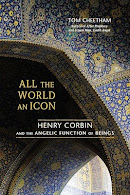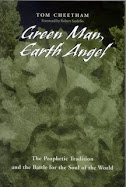"...the Imagination (or love, or sympathy, or any other sentiment) induces knowledge, and knowledge of an 'object' which is proper to it..."
Henry Corbin (1903-1978) was a scholar, philosopher and theologian. He was a champion of the transformative power of the Imagination and of the transcendent reality of the individual in a world threatened by totalitarianisms of all kinds. One of the 20th century’s most prolific scholars of Islamic mysticism, Corbin was Professor of Islam & Islamic Philosophy at the Sorbonne in Paris and at the University of Teheran. He was a major figure at the Eranos Conferences in Switzerland. He introduced the concept of the mundus imaginalis into contemporary thought. His work has provided a foundation for archetypal psychology as developed by James Hillman and influenced countless poets and artists worldwide. But Corbin’s central project was to provide a framework for understanding the unity of the religions of the Book: Judaism, Christianity and Islam. His great work Alone with the Alone: Creative Imagination in the Sufism of Ibn ‘Arabi is a classic initiatory text of visionary spirituality that transcends the tragic divisions among the three great monotheisms. Corbin’s life was devoted to the struggle to free the religious imagination from fundamentalisms of every kind. His work marks a watershed in our understanding of the religions of the West and makes a profound contribution to the study of the place of the imagination in human life.Search The Legacy of Henry Corbin: Over 800 Posts
Monday, May 14, 2018
Lecture/Workshop in Maine
Fri, Jun 1, 2018 7:00 PM
Sat, Jun 2, 2018 10:00 AM
The C.G. Jung Center
Brunswick, Maine
Fri, Jun 1, 2018 7:00 PM Sat, Jun 2, 2018 10:00 AM
Friday Evening Lecture: REGISTER
Saturday Workshop: REGISTER
Friday evening I will argue for three fundamental propositions: Imagination is Reality; our experience is historically and culturally variable; Language is the means by which we both receive and create the world. We will explore the consequences of this view of reality with the help of the work of C.G. Jung, Henry Corbin, James Hillman, Gaston Bachelard and a variety of poets and artists. We will consider Jung's Red Book, why he refused to think of it as "art," and its place within the artistic tradition. This will lead us to ask about the relation between abstract thought and our archaic, primary human potential. Saturday we will extend this analysis by considering why alchemy was such an important component of the work of all four of our canonical guides to the Imagination. We will consider historically and culturally variable versions of the experience of the "saturated phenomenon." I will end by suggesting practical steps we can take to help us all be more alive, open and compassionate.
Subscribe to:
Post Comments (Atom)






No comments:
Post a Comment